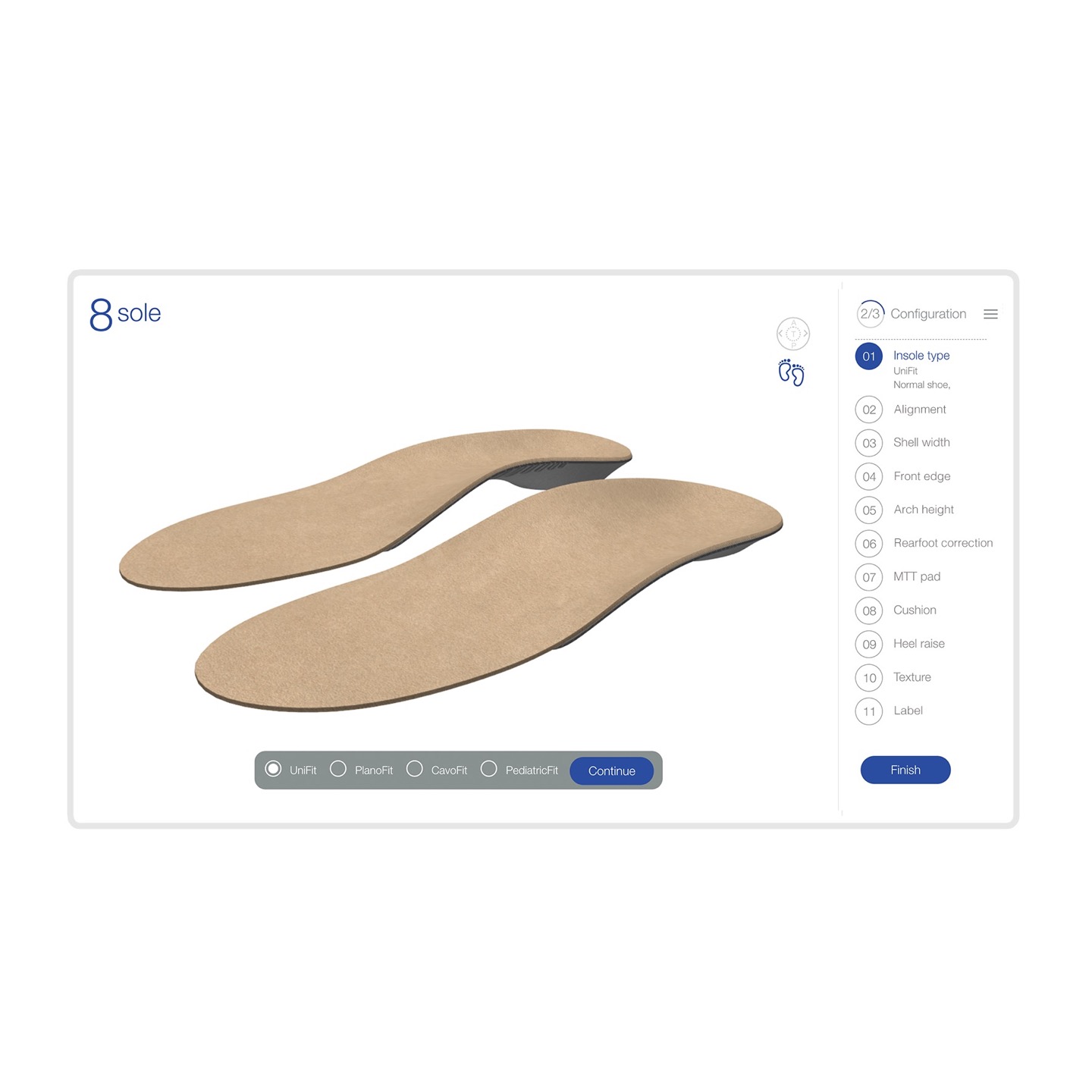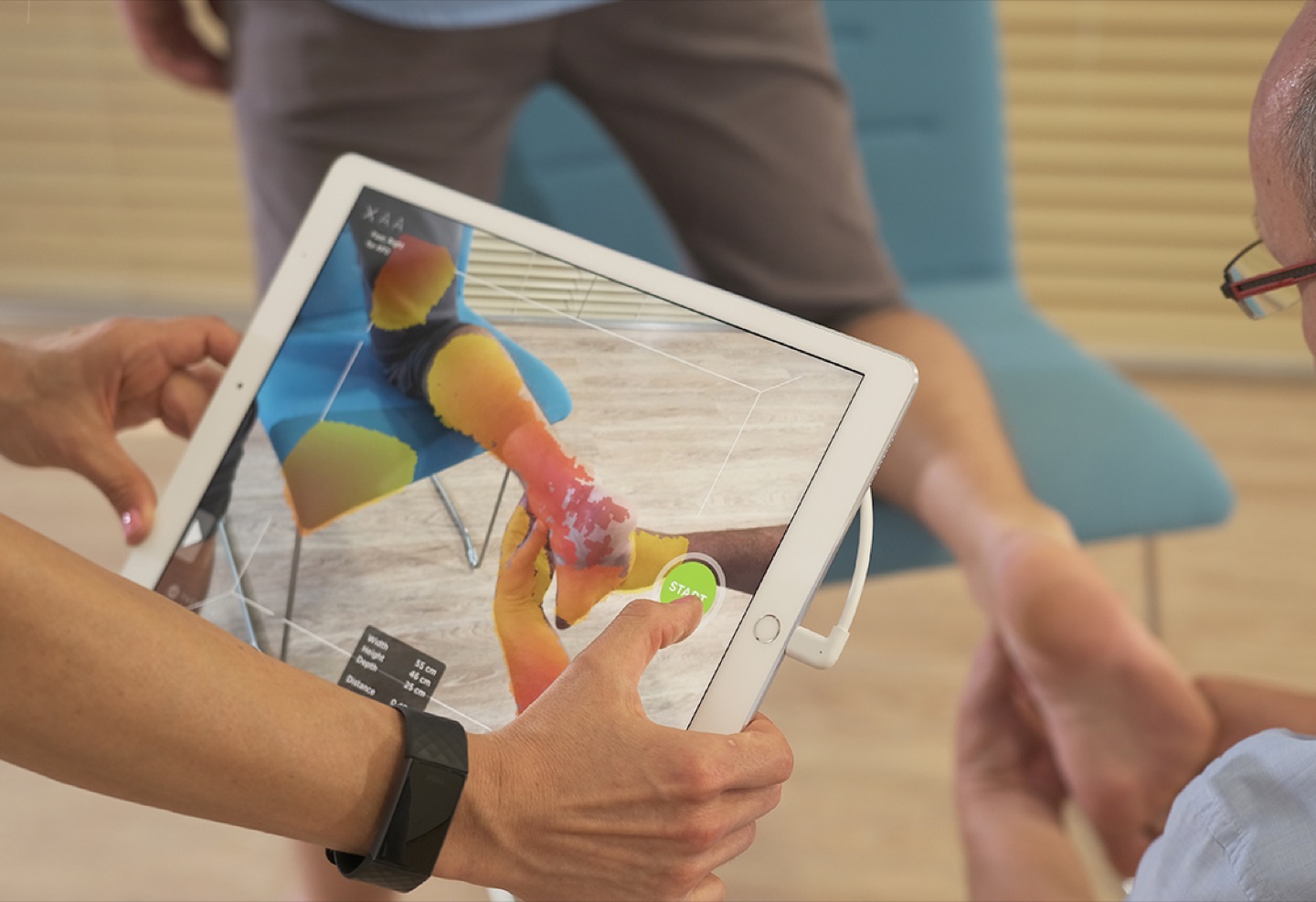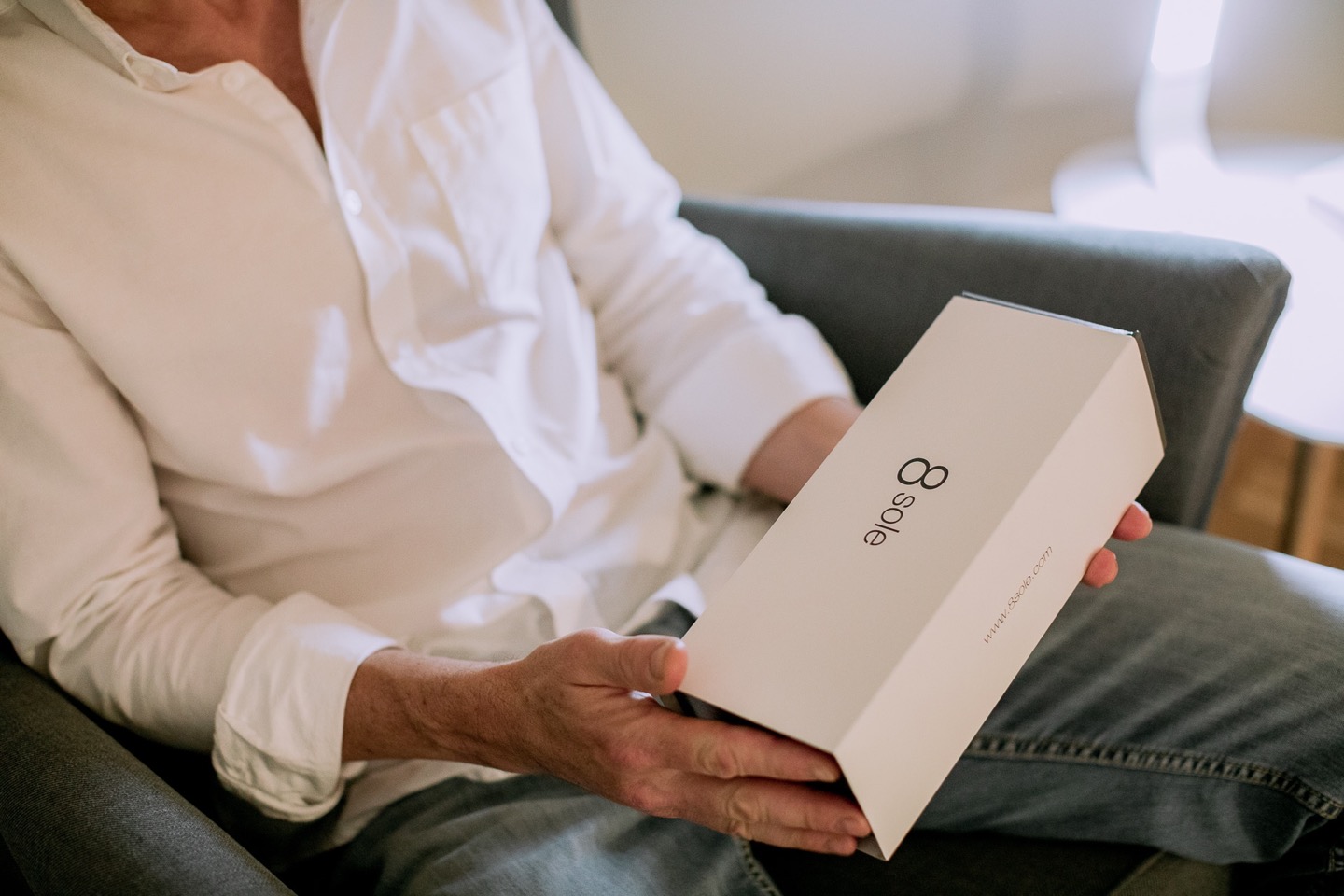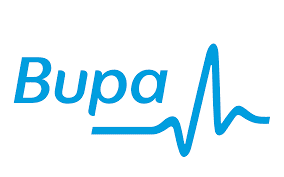What are foot orthotics?
Foot orthotics are insoles which fit into the base of a shoe to help reduce compensation, strain and improve function in the foot, ankle and leg. Research has shown that orthotics reduce pain (1), as well as increase foot muscle strength (2).
How long orthotics may be required will depend on your diagnosis / condition. Fixed anatomical deviations (such as congenital issues or arthritic joints) may indicate a need for long-term use. For soft tissue injuries which can be re-habilitated with massage and exercise, orthotics can be a useful short to medium-term option to reduce strain on specific body parts.
There is no evidence to suggest that wearing them on a short or long-term basis is bad for you or will weaken your muscles (3). Orthotics don’t work for everyone, particularly where deformities are severe. Other reasons for failure may include poor assessment measurements, poor casting technique, lab mistakes, inappropriate materials or unforeseen proprioceptive factors (4).

Types of othotics
Orthotics fall into two main categories: Prefabricated (off the shelf) and Custom-made.
Pre-fabricated orthotics are relatively cheap, convenient and effective. However they are created for an “average” foot shape, therefore may not fit you correctly or have the right characteristics for you. The limited range of design features of pre-fabricated orthotics, lack of durability and the time and cost of modifications are disadvantages of these orthotics.
Custom-made orthotics are based on a precise assessment of the foot, followed by the manufacture of a customised orthotic specifically made for your individual foot. Methods of assessment vary and include: Creating an impression in a foam box, Digital scanning and impressions (Computer aided design), weight bearing plaster casts and in-shoe vacuum impression. The benefits of Custom made orthotics are that they are fully customisable for your foot shape & foot mechanics, customisable for the type of use (running / occupation etc), long life span. Custom made orthotics are more expensive and require an in-depth assessment prior to manufacture.

Custom Orthotics at Freedom Care Clinic
Freedom Care Clinics use a 3d foot scanner (Computer aided design) method which is fully digital, and a unique file is sent to our manufacturer for direct digital manufacturing through 3d printing. Freedom Care Clinics have partnered with Invent Medical’s 8Sole Foot Orthotics, which are “the most advanced, custom, high-end foot orthotics” (6). They have been on the market for five years and are based on 30 years of foot orthotics manufacturing and two million cycles of product testing. It is a clean, speedy and accurate process, to sub-millimetre precision, with no need for guess-work. The scan is taken in seconds while the foot is held in a neutral position, either non-weight-bearing or weight-bearing, depending on what is most appropriate for the patient. Features such as flexibility, thickness, torsion stiffness and add-ons are customised and consider weight and lifestyle activities. These foot orthotics are configured to support the foot where it is needed, while allowing for the natural movements that occur during the gait cycle.
Once your foot has been scanned during the assessment appointment, the podiatrist will design your orthotic with you on-site before submission for 3D printing. Invent Medical use powder-based industrial grade 3D printing for quality assurance and regulation compliance. The manufacturing time for orthotics is around two weeks. As an extra touch, the orthotics can be personalised with a choice of different top covers and personalised text. If you need another pair of insoles, these can be ordered and are an exact replica of the originals. In addition, they are eco-friendly, are made with plant-based materials, and produce 70% less waste than standard orthotics (6).
References
- Donatelli et al, 1988- cited in Chapter 3: Abnormal Motion during the Gait Cycle in Foot Orthoses and Other Forms of Conservative Foot Care by Thomas C. Michaud, p.64.
- Mayer et al, 2007; Payne and Zammit, 2008; Jung et al, 2011. Cited in Craig Payne’s Biomechanics Boot Camp (On-line)
- Craig Payne, Biomechanics Bootcamp (On-Line)
- Chapter 7: Orthotic Dispensing, Shoe Gear, and Clinical Problem-Solving in Foot Orthoses and Other Forms of Conservative Foot Care by Thomas C. Michaud, p.228.
- Chapter 5: Casting Techniques in Foot Orthoses and Other Forms of Conservative Foot Care by Thomas C. Michaud, p.194.
- Invent Medical (Training programme by Claire, product specialist at Invent Medical – Online.
Prices
MSK Biomechanical Assessments with 3d Foot Scan (45 mins) – £65.00
Custom Orthotics – £199.00
Prefabricated orthotics – £69.00
Blog written by Miranda Harrington, Registered Podiatrist at Freedom Care Clinics.






